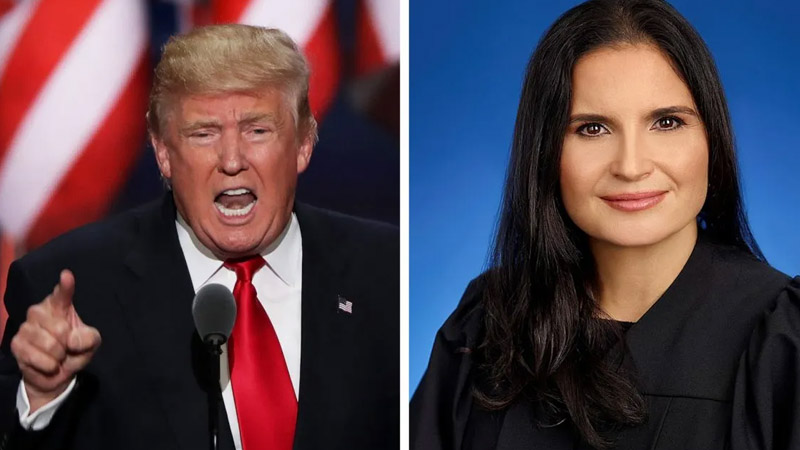In the courtroom of Judge Aileen Cannon, a series of mysterious and unrecorded filings have been accumulating, casting a shadow of confusion over the proceedings related to the case involving former President Donald Trump and classified documents found at his Mar-a-Lago estate.
The peculiar handling of these “secret docket” measures was brought to light by Roger Parloff of Lawfare, who noted the unusual stacking of filings related to the case. Parloff highlighted a particularly convoluted sequence of filings where the government sought permission to file additional documents in response to replies and motions that had yet to be officially recorded in the docket.
This chain of unrecorded actions points to a significant departure from standard judicial procedures, sparking concerns and speculation about the underlying reasons. The irregularities in Cannon’s courtroom were first identified earlier in the year, leading Parloff to question the judge’s familiarity with the judicial filing system, told Ap News.
He traced the issue back to a directive issued by Judge Cannon on February 6, which deviated from local rules by requiring parties to obtain her approval before filing sealed or redacted documents. This directive seemingly led to a practice where attorneys were circulating documents among themselves and to the judge via email, pending Cannon’s decisions on redactions, culminating in the current state of undisclosed filings, via Raw Story.
Parloff suggests that Cannon’s approach may stem from a fundamental misunderstanding of the principles governing public access to court filings. He posits that the judge may be operating under the mistaken belief that all documents filed with the court are automatically meant for public consumption, a view that he contends is flawed.
Judge Cannon, who was appointed by Trump, has faced criticism for a series of unusual rulings that seem to afford the former president privileges not typically extended to ordinary criminal defendants. Among these contentious decisions was an attempt to have classified documents seized from Mar-a-Lago, which are under FBI investigation for national security implications, reviewed by a special master to determine if they were privileged.
Furthermore, Cannon has made moves to compel the disclosure of witness information to Trump, raising alarms from special counsel Jack Smith about the potential risks of witness tampering. These developments in Judge Cannon’s courtroom add a layer of complexity and intrigue to the legal challenges facing the former president, highlighting the unique and controversial nature of the proceedings in this high-profile case.

